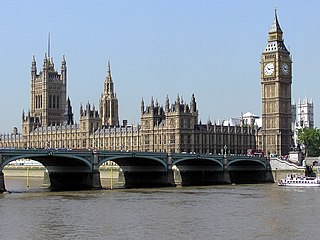
The Federation of American Scientists (FAS) is an American nonprofit global policy think tank with the stated intent of using science and scientific analysis to attempt to make the world more secure. FAS was founded in 1946 by scientists, including some who worked on the Manhattan Project, to develop the first atomic bombs. The Federation of American Scientists states that it aims to reduce the amount of nuclear weapons that are in use, and prevent nuclear and radiological terrorism. It says it aims to present high standards for nuclear energy's safety and security, illuminate government secrecy practices, as well as track and eliminate the global illicit trade of conventional, nuclear, biological and chemical weapons.
Diversitas was an international research programme aiming at integrating biodiversity science for human well-being. In December 2014 its work was transferred to the programme called Future Earth, which was sponsored by the Science and Technology Alliance for Global Sustainability, comprising the International Council for Science (ICSU), the International Social Science Council (ISSC), the Belmont Forum of funding agencies, the United Nations Educational, Scientific, and Cultural Organization (UNESCO), the United Nations Environment Programme (UNEP), the United Nations University (UNU) and the World Meteorological Organization (WMO).

The American Society for Microbiology (ASM), originally the Society of American Bacteriologists, is a professional organization for scientists who study viruses, bacteria, fungi, algae, and protozoa as well as other aspects of microbiology. It was founded in 1899. The Society publishes a variety of scientific journals, textbooks, and other educational materials related to microbiology and infectious diseases. ASM organizes annual meetings, as well as workshops and professional development opportunities for its members.

The International Union of Biological Sciences is a non-profit organization and non-governmental organization founded in 1919 that promotes biological sciences internationally. As a scientific umbrella organization, it was a founding member of the International Council for Science (ICSU).

The Ecological Society of America (ESA) is a professional organization of ecological scientists. Based in the United States and founded in 1915, ESA publications include peer-reviewed journals, newsletters, fact sheets, and teaching resources. It holds an annual meeting at different locations in the USA and Canada. In addition to its publications and annual meeting, ESA is engaged in public policy, science, education, and diversity issues.

Health education is a profession of educating people about health. Areas within this profession encompass environmental health, physical health, social health, emotional health, intellectual health, and spiritual health, as well as sexual and reproductive health education. It can also be defined as any combination of learning activities that aim to assist individuals and communities improve their health by expanding knowledge or altering attitudes.

Environmental education (EE) refers to organized efforts to teach how natural environments function, and particularly, how human beings can manage behavior and ecosystems to live sustainably. It is a multi-disciplinary field integrating disciplines such as biology, chemistry, physics, ecology, earth science, atmospheric science, mathematics, and geography.
The American Association for Cancer Research (AACR) is the world's oldest and largest professional association related to cancer research. Based in Philadelphia, the AACR focuses on all aspects of cancer research, including basic, clinical, and translational research into the etiology, prevention, diagnosis, and treatment of cancer. Founded in 1907 by 11 physicians and scientists, the organization now has more than 58,000 members in 142 countries and territories. The mission of the AACR is to prevent and cure cancer through research, education, communication, collaboration, science policy and advocacy, and funding for cancer research.

The Parliamentary Office of Science and Technology (POST) is the Parliament of the United Kingdom's in-house source of independent, balanced and accessible analysis of public policy issues related to science and technology. POST serves both Houses of Parliament.
The Advancement of Sound Science Center (TASSC), formerly The Advancement of Sound Science Coalition, was an industry-funded lobby group and crisis management vehicle, and was created in 1993 by Phillip Morris and APCO in response to a 1992 United States Environmental Protection Agency (EPA) report which identified secondhand smoke as a "confirmed" human carcinogen. TASSC's stated objectives were to (1) discredit the EPA report; (2) fight anti-smoking legislation; and (3) pro-actively pass legislation favourable to the tobacco industry.
BioScience is a monthly peer-reviewed scientific journal that is published by Oxford University Press on behalf of the American Institute of Biological Sciences. It was established in 1964 and was preceded by the AIBS Bulletin (1951–1963).
The American Society for Cell Biology (ASCB) is a professional society that was founded in 1960.
Scientists and Engineers for America (SEA) was an organization focused on promoting sound science in American government, and supporting candidates who understand science and its applications. SEA was formed on September 27, 2006, and describes itself as non-partisan.

Research Councils UK, sometimes known as RCUK, was a non-departmental public body that coordinated science policy in the United Kingdom from 2002 to 2018. It was an umbrella organisation that coordinated the seven separate research councils that were responsible for funding and coordinating academic research for the arts, humanities, science and engineering. In 2018 Research Councils transitioned into UK Research and Innovation (UKRI).
The Society for Women's Health Research (SWHR) is a national non-profit organization based in Washington, D.C. SWHR is the thought leader in research on biological differences in disease and is dedicated to transforming women's health through science, advocacy, and education.
The National Center for Ecological Analysis and Synthesis (NCEAS) is a research center at the University of California, Santa Barbara, in Santa Barbara, California. Better known by its acronym, NCEAS (pronounced “n-seas”) opened in May 1995. Funding for NCEAS is diverse and includes supporters such as the U.S. National Science Foundation, the State of California, and the University of California, Santa Barbara.
Science outreach, also called education and public outreach or simply public outreach, is an umbrella term for a variety of activities by research institutes, universities, and institutions such as science museums, aimed at promoting public awareness of science and making informal contributions to science education.
The Materials Research Society (MRS) is a non-profit, professional organization for materials researchers, scientists and engineers. Established in 1973, MRS is a member-driven organization of approximately 13,000 materials researchers from academia, industry and government.
The Federation of American Societies for Experimental Biology (FASEB), based in Rockville, Maryland, is a non-profit organization of scientific societies in the United States. With a focus on the biological and biomedical sciences, the federation represents scientists in such fields as anatomy, physiology, immunology, biochemistry, molecular biology, toxicology, genetics, and nutrition.
The Genetics Society of America (GSA) is a scholarly membership society of more than 5,500 genetics researchers and educators, established in 1931. The Society was formed from the reorganization of the Joint Genetics Sections of the American Society of Zoologists and the Botanical Society of America.







